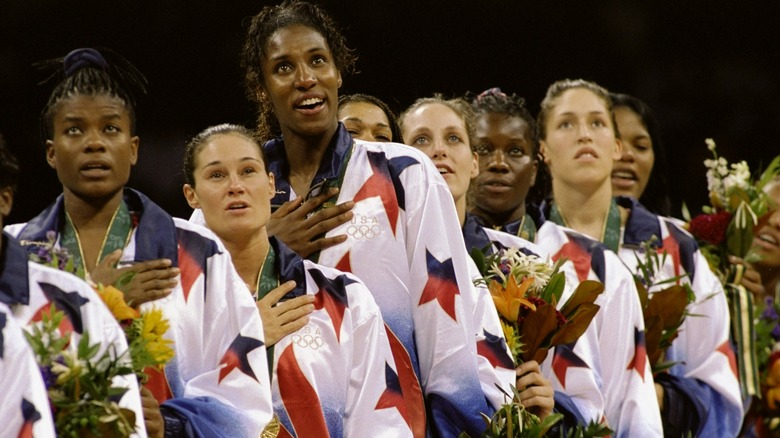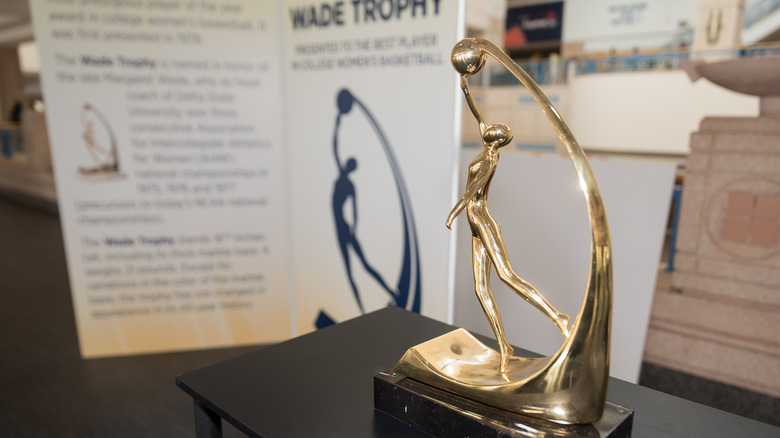Why The 1996 Women's Basketball Team's Gold Medal Was So Important
For the last 24 years, the Women's National Basketball Association (WNBA) has been one of the primary outlets for women in what was previously a male-dominated sport. While not the first instance of women in professional basketball, as several women were signed on to the Harlem Globetrotters from the 1980's onward, its foundation was nevertheless a major shift in the history of basketball. The late Kobe Bryant was one of the league's strongest proponents, regularly speaking on its importance to the future of the sport (via The Los Angeles Times).
Despite of recurring difficulties, such as being paid less than their male counterparts and stereotypes regarding their popularity, according to Winsidr more and more viewers are tuning in to watch their games each year. What many may not realize though, is that the league is not only built upon the achievements of the U.S. women's basketball team, but it may not have even formed were it not for the latter's performance in the 1996 Olympics.
The women's basketball team ensured the WNBA's survival
Although the USA Basketball Women's National Team saw impressive victories in its early years, by the 1992 and 1994 Olympics, bronze was the dominant medal adorning its players (via USA Basketball). This was a concern to many on the team, as they believed any future women's basketball league could be jeopardized by continued defeats (via Seattle Times). In order to ensure the utmost preparedness, between the selection of its new players in 1995 and the Olympics, the team embarked on an intensive series of games not only across the country but across the world.
Ukraine, Russia, China, Australia, and several European countries were among their opponents during these exhibition games, with the US players winning all 52 by the time of the Olympics (via ESPN). When the team faced Brazil during the games from July to August, it was a stunning success in favor of the U.S., validating both their training and the potential of female players in America. The gold medals they wore that year not only sustained the then-fledgling WNBA but also inspired future generations of hopeful players.

